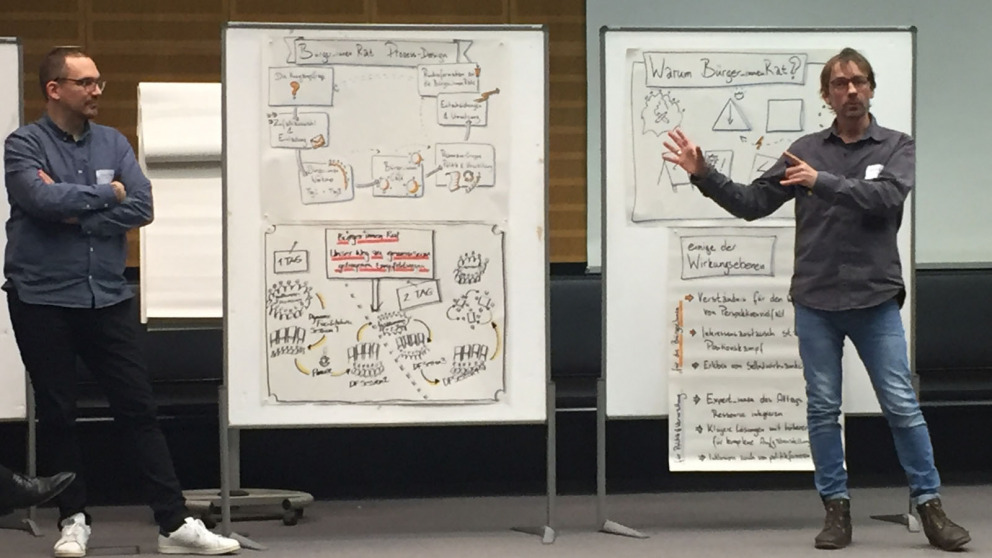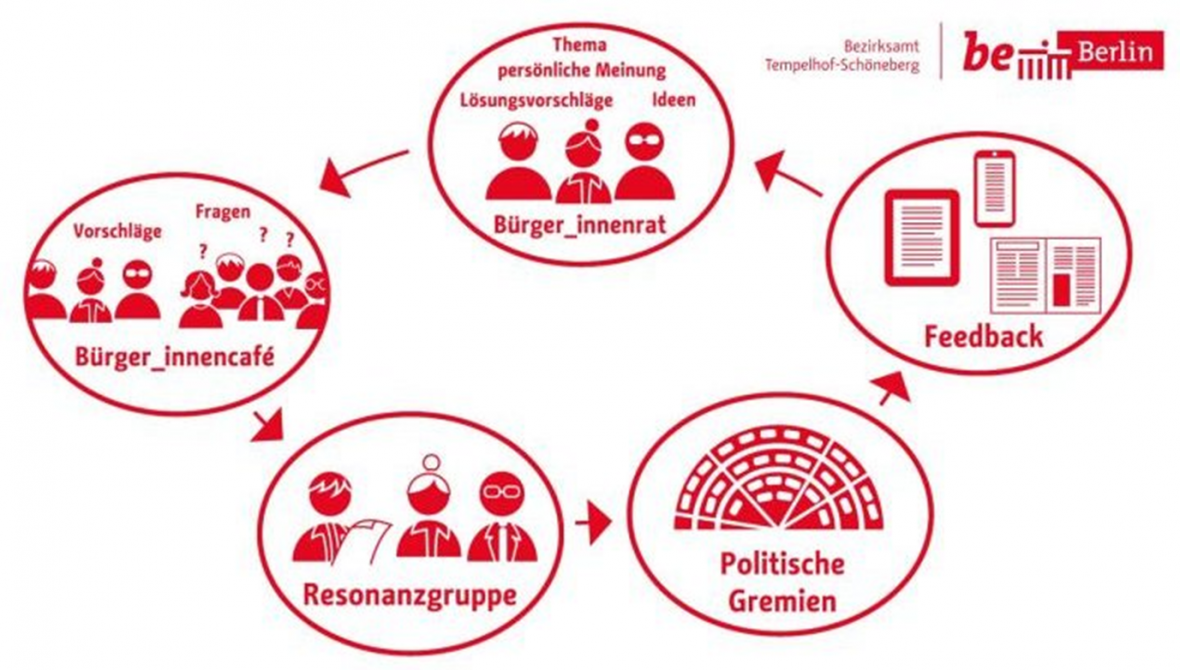Making a Difference Together: Citizen Councils in Berlin
29.01.2020

As part of a pilot project funded by the State of Berlin, the borough of Tempelhof-Schöneberg is currently experimenting with a new form of citizen participation: Citizen Councils. Since August 2019 citizen councils have been meeting in all of the borough’s seven districts to discuss how “to preserve quality of life in their neighbourhood and collectively shape its future.” They will continue to meet until March 2020. The councils are made up of 12 to 15 randomly selected citizens from each district, who were invited by the local mayor to grapple with this question and come up with recommendations for local government and public administration.
The clever design of the overall process ensures that the joint recommendations formulated by the participating citizens do not fall on deaf ears and have a real impact in the locality. Over the course of a one-and-a-half-day retreat held for each of the seven citizen councils, participants identify particular challenges and concerns, take important perspectives into account, and gather proposals for solutions. This information is then structured and summarised in the form of “recommendations and key messages”.
In the next step, the results of the councils’ deliberations are presented and handed over to the mayor during a Citizens Cafe, which is open to the public and the media. After that, a local government “advisory group” examines the recommendations. The Local Authority Board and the Borough Council subsequently decide which recommendations can be adopted and provide detailed feedback to the citizen councils in the form of a public report.

Citizen councils allow ordinary citizens to contribute to decision-making processes and enrich the work of their local authority by bringing their perspectives to the table as “experts on their locality”. Random selection is a deliberate attempt to ensure that instead of the “usual suspects”, the people who sit on these councils are not (primarily) motivated by vested interests or a political agenda. For the selection process, a sample is taken from the register of residents, making sure to strike a balance in terms of the numbers of women and men and the age groups represented. The aim is to recruit a broad cross-section of the local community so that as many perspectives as possible are included in the council’s deliberations. This is an important prerequisite for developing recommendations that can make a genuine contribution to the work of local government and public administration.Thanks to the professional organisation of the process and the support provided to participants throughout, citizens emerge from the council retreat with a sense of collective purpose. Instead of simply “getting something off their chest”, they develop a clear idea of what they want and how to achieve it together.
This kind of citizen council has been used to good effect in the Austrian state of Vorarlberg since 2006. The IASS is supporting the Borough of Tempelhof-Schöneberg in the process of adapting the Austrian model to the local context and helping to establish the councils as a permanent fixture in the city.
Further information on the citizen councils in Tempelhof-Schöneberg can be found at:
https://www.berlin.de/ba-tempelhof-schoeneberg/politik-und-verwaltung/gremien-und-ansprechpersonen/buerger-innenrat/
